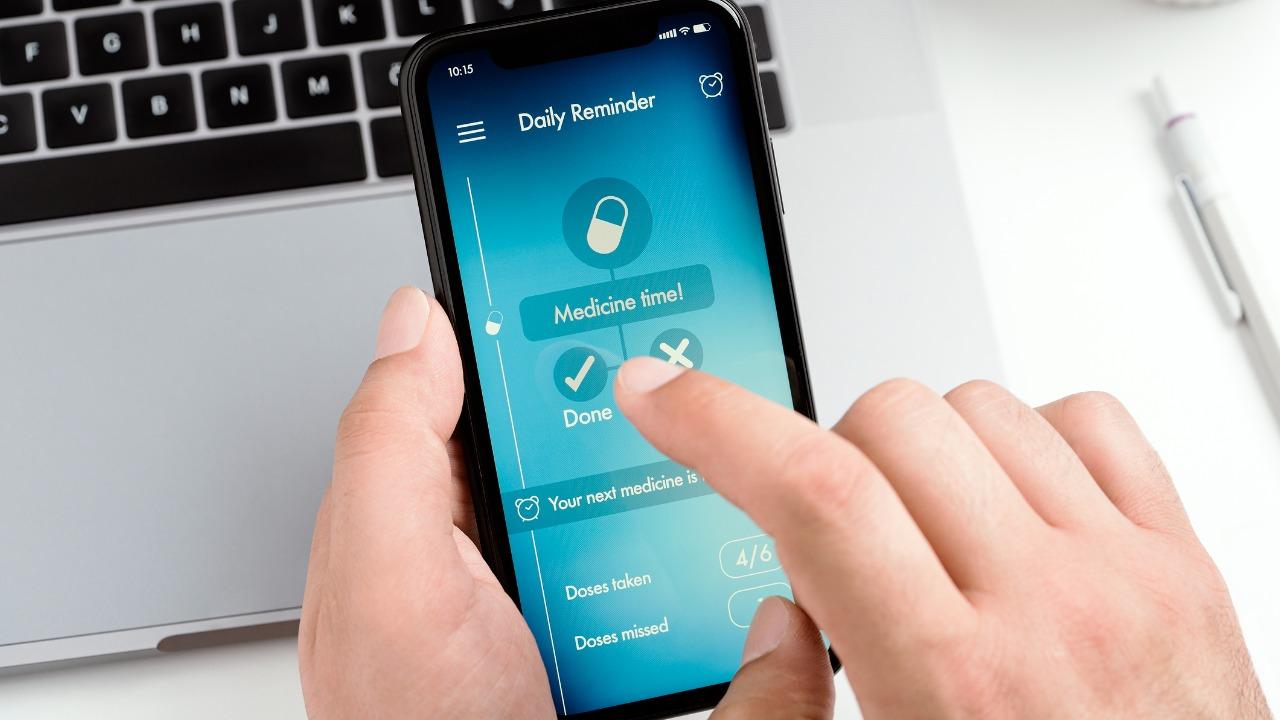In the world of healthcare app development, technology is revolutionizing the efficiency of the healthcare industry.
In today’s fast-paced and ever-evolving healthcare landscape, efficiency plays a crucial role in delivering quality care, optimizing workflows, and improving patient outcomes. This article delves into the realm of healthcare apps, exploring how they enhance efficiency and streamline processes to transform the way healthcare is delivered.
Section 2: Streamlining Administrative Processes
In the complex web of administrative tasks within healthcare, automation and digitization have emerged as game-changers. Healthcare apps are streamlining various administrative processes, saving time and resources for healthcare providers and staff. Here are some key areas where healthcare apps are improving efficiency:
Automating appointment scheduling and reminders: Healthcare apps enable patients to schedule appointments conveniently, reducing phone call volumes and administrative workload. Automated appointment reminders via push notifications or SMS help minimize no-shows, optimizing healthcare providers’ schedules and improving patient attendance rates.
Simplifying patient registration and documentation: Healthcare apps facilitate digital registration processes, eliminating the need for extensive paperwork. Patients can fill out forms, provide necessary information, and submit documents electronically, reducing administrative burdens and enhancing data accuracy.
Enhancing billing and insurance claim processes: Healthcare apps streamline billing and insurance claim submission procedures. Patients can view and pay bills online, reducing administrative overhead associated with traditional billing methods. Additionally, healthcare apps integrate with insurance systems, simplifying the claim submission process and accelerating reimbursement timelines.
By leveraging healthcare apps to streamline administrative processes, healthcare providers can allocate more time and resources to patient care, leading to improved efficiency and a better overall healthcare experience.
Facilitating Communication and Collaboration
Effective communication and collaboration are essential components of efficient healthcare delivery. Healthcare apps play a crucial role in bridging communication gaps and facilitating seamless collaboration among healthcare providers, patients, and other stakeholders. Here’s how healthcare apps improve efficiency in communication and collaboration:
Enabling secure messaging between healthcare providers and patients: Healthcare apps provide a secure platform for secure messaging, allowing patients to communicate directly with their healthcare providers. This enables quick and efficient communication for non-urgent inquiries, prescription renewals, and follow-up questions, reducing the need for unnecessary office visits or phone calls.
Supporting telemedicine and virtual consultations: Healthcare apps enable telemedicine, allowing patients to have virtual consultations with healthcare providers from the comfort of their homes. This eliminates the need for travel and reduces wait times, increasing access to care while optimizing healthcare providers’ schedules.
Improving care coordination among healthcare teams: Healthcare apps facilitate seamless collaboration among healthcare teams by providing a centralized platform for sharing patient information, test results, and treatment plans. This enhances care coordination, reduces errors, and ensures that all members of the healthcare team are on the same page, resulting in improved efficiency and patient outcomes.
By leveraging healthcare apps for communication and collaboration, healthcare providers can enhance efficiency, reduce administrative burdens, and improve the overall quality of care.
Enhancing Access to Information and Medical Records
Access to accurate and up-to-date information is crucial for efficient healthcare delivery. Healthcare apps empower patients and healthcare providers by providing easy access to medical records and health information. Here’s how healthcare apps enhance efficiency in accessing information and medical records:
Digitizing medical records for easy retrieval: Healthcare apps digitize medical records, making them easily accessible to healthcare providers. This eliminates the need for manual record searches and reduces the risk of errors associated with paper-based records. Healthcare providers can quickly retrieve patient information, view medical history, and make informed decisions, leading to improved efficiency and patient safety.
Providing patients with access to their health information: Healthcare apps allow patients to access their health information, such as lab results, medication lists, and appointment schedules. This empowers patients to actively engage in their healthcare management, facilitating self-care and reducing the need for repeated inquiries or appointments for accessing basic health information.
Enabling healthcare providers to access real-time patient data: Healthcare apps enable healthcare providers to access real-time patient data, such as vital signs, lab results, and medication adherence. This facilitates prompt decision-making, reduces delays in care, and improves overall efficiency in diagnosing and treating patients.
By leveraging healthcare apps to enhance access to information and medical records, healthcare providers can streamline workflows, reduce administrative burdens, and deliver more efficient and personalized care to their patients.
Empowering Self-Management and Patient Engagement
Empowering patients to actively participate in their healthcare journey is key to improving efficiency and outcomes. Healthcare apps provide tools and resources that enable self-management and promote patient engagement. Here’s how healthcare apps enhance efficiency in self-management and patient engagement:
Offering personalized health tracking and monitoring: Healthcare apps provide features for patients to track and monitor their health metrics such as blood pressure, glucose levels, or exercise routines. These apps can generate personalized insights and reminders, empowering patients to take control of their health and make informed decisions.
Providing educational resources and self-care tools: Healthcare apps offer a wealth of educational resources, from articles to videos, that help patients understand their conditions and treatment options. Additionally, self-care tools like medication reminders, symptom trackers, and healthy lifestyle tips are often integrated into these apps, promoting proactive self-management and reducing the need for frequent healthcare visits.
Encouraging patient engagement and adherence to treatment plans: Healthcare apps facilitate communication between healthcare providers and patients, ensuring clear instructions and reminders for treatment plans. Patients can receive personalized care plans, medication schedules, and educational materials through the app, increasing engagement and adherence to recommended treatments. This reduces the likelihood of missed appointments or medication errors, enhancing efficiency and improving patient outcomes.
By empowering patients with self-management tools and promoting engagement, healthcare apps improve efficiency by fostering proactive and informed patient care.
Improving Medication Management
Medication management is a critical aspect of healthcare that can greatly impact patient safety and treatment outcomes. Healthcare apps offer features that streamline medication management processes, benefiting both patients and healthcare providers. Here’s how healthcare apps improve efficiency in medication management:
Sending medication reminders and dosage instructions: Healthcare apps can send timely reminders to patients about when to take their medications and in what dosage. This helps patients adhere to their prescribed medication regimen, reducing the risk of missed doses or incorrect timing. Healthcare providers can also monitor medication adherence through the app and intervene if necessary.
Providing medication interaction and allergy alerts: Healthcare apps can alert patients and healthcare providers about potential medication interactions or allergies based on the patient’s medical history and medication profile. This reduces the risk of adverse reactions and allows for timely adjustments to medication plans, optimizing treatment effectiveness.
Facilitating prescription refills and medication delivery: Healthcare apps enable patients to request prescription refills directly through the app. This eliminates the need for phone calls or visits to the healthcare provider’s office, saving time for both patients and healthcare staff. Some apps also offer medication delivery services, further enhancing convenience and efficiency.
By improving medication management processes, healthcare apps help optimize treatment adherence, reduce medication errors, and enhance overall patient safety and efficiency in healthcare delivery.
Enhancing Data Analytics and Insights
Data analytics plays a crucial role in driving efficiency and improving healthcare outcomes. Healthcare apps leverage data to provide valuable insights that inform decision-making and optimize care delivery. Here’s how healthcare apps enhance efficiency through data analytics and insights:
Collecting and analyzing healthcare data for insights: Healthcare apps collect and analyze various data points, including patient demographics, medical history, and treatment outcomes. This data can be used to identify trends, patterns, and correlations that offer valuable insights into patient populations, disease management, and treatment effectiveness.
Improving clinical decision-making and outcomes: By leveraging data analytics, healthcare apps help healthcare providers make informed clinical decisions. Analyzing patient data and treatment outcomes allows for personalized care plans, optimized interventions, and evidence-based practices. This enhances efficiency by ensuring that patients receive the most appropriate and effective care.
Enhancing population health management: Healthcare apps enable population health management by aggregating and analyzing data across a broader patient population. This helps identify health trends, disease prevalence, and areas of focus for preventive care initiatives. Population health insights allow healthcare providers to proactively address health concerns, allocate resources efficiently, and improve overall community health.
Data-driven insights enable healthcare providers to make more informed decisions, streamline workflows, and deliver targeted care. By leveraging healthcare apps for data analytics, healthcare organizations can enhance efficiency, reduce costs, and improve patient outcomes.
Conclusion
In the fast-paced world of healthcare, efficiency is a vital factor in delivering high-quality care and improving patient outcomes. Healthcare apps have emerged as powerful tools that streamline processes, empower patients, and enhance communication and collaboration. From streamlining administrative tasks to improving medication management and leveraging data analytics, healthcare apps play a pivotal role in driving efficiency in the healthcare industry.
Embrace the potential of healthcare apps to transform your organization’s efficiency, improve patient care, and drive better outcomes. By adopting these powerful tools, you can stay at the forefront of healthcare innovation and create a more streamlined and effective healthcare system.
If you are seeking professional assistance in healthcare app development, we recommend considering New York Software Developers. With their expertise in crafting innovative and efficient healthcare solutions, they can help your organization harness the power of technology to optimize healthcare delivery.




